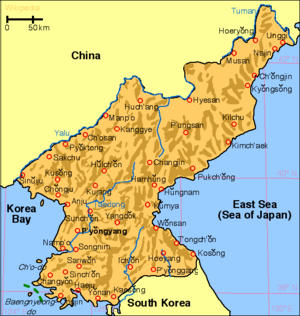 Image via Wikipedia
Image via Wikipedia
John Bittleston, succeed@mediacorp.com.sg
AN EXCELLENT way to destroy a society or an organisation is to drown it in jargon.
Over the past decade, there has been serious murder of the language.
As our technical ability to communicate quickly and efficiently has increased - exponentially in the last few years - so abuse by incompetently and unnecessarily invented language has grown to match it, in all languages. Pick up any official document, any terms and conditions, any contract between two organisations or people and you will see dozens of examples.
Many organisations want to confuse the customer. Did you read the small print on the last insurance or banking contract you signed? I doubt it. Even if you could see the 6-point font in which it was produced, it is unlikely you would have understood more than a fifth of the words. You were probably being urged to sign it quickly while the "special offer" lasted. This is theft, but don't try prosecuting.
You have already signed away your rights to honest dealing, competence, promptness and redress. You have been changed from victim into perpetrator.
Then there is self-aggrandisement. Spouting a lot of words or mnemonics that others don't understand makes some people imagine they are successful and important. They are merely making themselves appear ridiculous and insecure.
A more complex slaughter of the language is caused by the widening gap between the sound-bite and the so-called research paper.

The fact that the world is becoming a more complex place is surely a signal for simpler, clearer communications.
We cannot avoid soundbites, and relevant ones have been with mankind since the dawn of civilisation. The warning grunt of Neanderthal Man alerting others to the arrival of hostile creatures and the sigh of the lovelorn for knowledge they are denied are both useful and expressive soundbites. But a soundbite is to communication what a peanut is to dinner: Titillating but unsatisfying.
At the other extreme is the Research Paper. Deep studies of our world are vital and welcome. They have been the basis of our longevity, our increasingly fulfilled and pain-free lives and our material well-being. Without them, progress would be slow, sporadic and uncertain.
However, truly good papers are well-researched, intelligible, devoid of unnecessary complexity and brief. World War II was won by the Allies because they insisted that all paper submissions be restricted to one page. Long, tortuous documents allowing the author to cover his posterior were forbidden.
It is widely agreed the world is becoming a more complex place. It has certainly been so in my lifetime. This should surely be seen as the signal for simpler, clearer communications, not for increasingly confusing ones. I wish it were practical to impose a word tax; alas, it is not.
Easy and cheap access to communication of every sort offers the possibility of more widespread appreciation of the arts and a deeper understanding of man's true spirituality - the beauty he creates himself with the tools he was given at birth.
Do any of the communications degrees so ardently studied today provide this kind of appreciation? Have these courses contributed to the real quality of life?
But this is what communication is about. Increased years of life are wasted if, at the end, we cannot say that we have had, within the limits imposed by our genes and the environment in which we were raised, a fulfilled life. Any education that does not contribute to all aspects of fulfilment is not education but training. Any communication that fails to enhance the quality of the precious gift we are given at birth is not informing but selling.
A good education and true communication together make life wonderfully fulfilled.
John Bittleston mentors people in business, career and their personal lives at www.TerrificMentors.com.
From TODAY, Business – Monday, 27-Jul-2009
![Reblog this post [with Zemanta]](http://img.zemanta.com/reblog_e.png?x-id=10100ffb-8dc4-4d5b-a33f-0a95b843c5c9)


![Reblog this post [with Zemanta]](http://img.zemanta.com/reblog_e.png?x-id=eaba420c-c4ec-42e1-84e6-1afd0a134264)

![Reblog this post [with Zemanta]](http://img.zemanta.com/reblog_e.png?x-id=73d4df15-59c7-451d-a02b-1089efb64f79)
![Reblog this post [with Zemanta]](http://img.zemanta.com/reblog_e.png?x-id=32813051-985a-4dda-b980-48ca828c3b98)

![Reblog this post [with Zemanta]](http://img.zemanta.com/reblog_e.png?x-id=263a0c3c-cf81-400b-8329-fa886716d70d)
![Reblog this post [with Zemanta]](http://img.zemanta.com/reblog_e.png?x-id=dd88a063-306c-4fe1-b885-e2d459f20fd0)

![Reblog this post [with Zemanta]](http://img.zemanta.com/reblog_e.png?x-id=bcdf18f8-b8b1-438d-b7a4-6a1bc1e91698)

![Reblog this post [with Zemanta]](http://img.zemanta.com/reblog_e.png?x-id=b07579f8-54a3-44bb-8c6c-8742c095a4ab)

![Reblog this post [with Zemanta]](http://img.zemanta.com/reblog_e.png?x-id=2c4c7c19-15f9-4d26-913a-a05cd49267a8)

![Reblog this post [with Zemanta]](http://img.zemanta.com/reblog_e.png?x-id=b5936eb9-b0f6-400c-88de-8c69051d2086)

![Reblog this post [with Zemanta]](http://img.zemanta.com/reblog_e.png?x-id=1d0863aa-930b-4cf8-9763-32b9059e4550)

![Reblog this post [with Zemanta]](http://img.zemanta.com/reblog_e.png?x-id=fd69bebd-085a-476e-aee6-68c6de197700)
